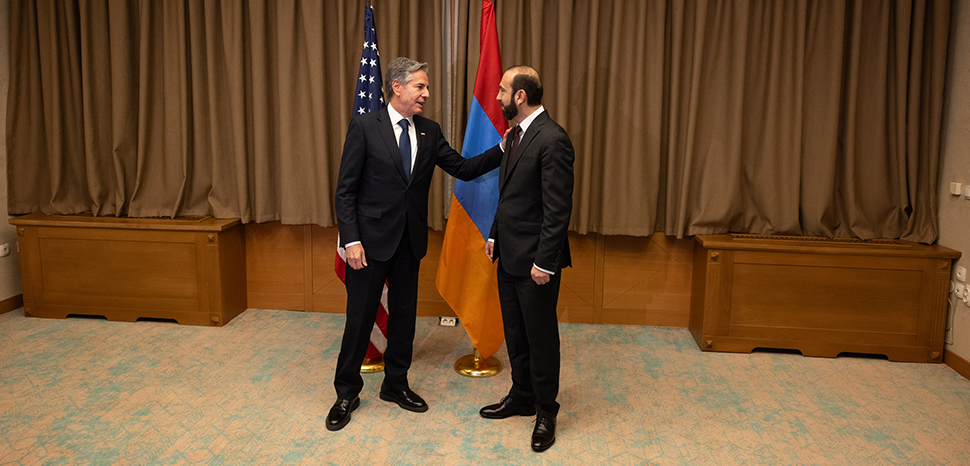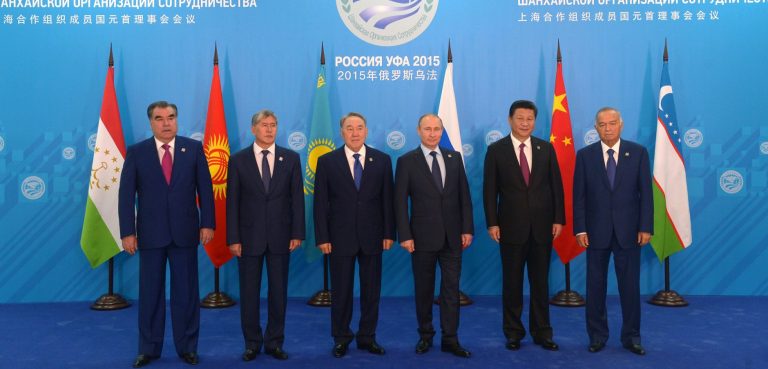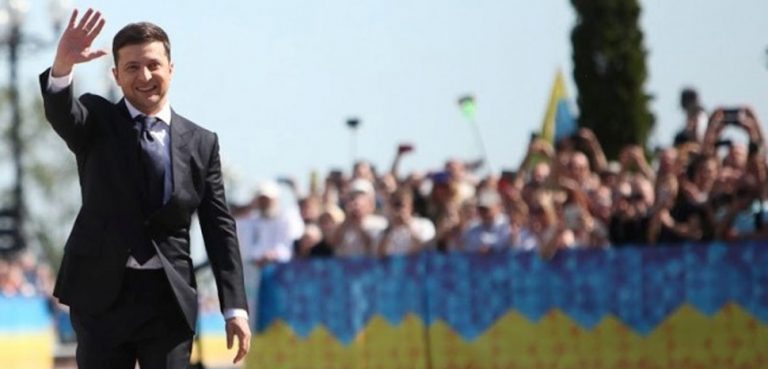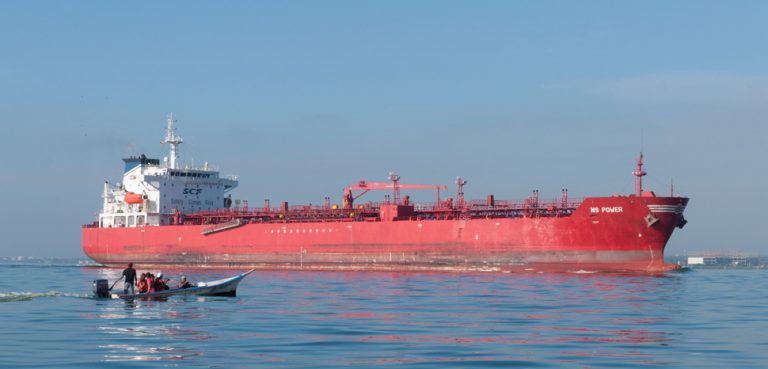Armenian Prime Minister Nikol Pashinyan is increasingly seeking to adopt a more balanced foreign policy of not leaving Russia’s orbit while at the same time integrating with Europe. Armenia has held joint military exercises with the US, expanded its relations with the European Union (EU), and joined the International Criminal Court (ICC).
A more balanced Armenian foreign and security policy is to be welcomed. It will take time to gradually move out of Russia’s orbit while being very difficult to withdraw Armenia from the Russian-led Collective Security Treaty Organization (CSTO) and Eurasian Economic Union (EEU). Armenia also has Russian military bases on its territory, Russia’s Federal Bureau of Security (FSB) assist in the protection of Armenia’s borders, while Armenia’s military is trained by Russia and mainly uses Russian military equipment.
In 2013, Russia successfully pressured Armenia to not sign an Association Agreement with the EU and instead join the EEU. Serzh A. Sargsyan, then Armenian president, was a member of the pro-Russian ‘Karabakh Clan’ which viewed Russia as a guarantee of an indefinite freezing of Armenia’s irredentist occupation of a fifth of Azerbaijan, including the Karabakh region, after it had won the First Karabakh War.
Pro-Russian forces suffered double blows in Armenia. The first was in 2018 when Pashinyan led a color revolution against the corrupt Sargsyan regime and brought a more pro-European, younger generation to power which sought to increase Armenia’s integration with Europe. The second was in 2020-2023 when Azerbaijan took back first its areas surrounding Karabakh and then Karabakh itself.
The pro-Russian ‘Karabakh clan’ is no longer powerful in Armenia. Pro-Russian forces will suffer from a third blow next year when Azerbaijan advises Russia that it will not renew its five-year peacekeeping mandate. Russia’s so-called peacekeeping forces have nothing to peace keep as Azerbaijani lands are no longer occupied and a peace treaty between both countries is soon to be signed.
Nevertheless, Pashinyan would do well to end Armenia’s role as one of the main conduits helping Russia evade Western sanctions. This practice both expands corruption in Armenia, strengthens corrupt Armenian-Russian networks and, in cementing Armenia’s links to Russia, makes it more difficult for Pashinyan to pursue European integration.
Armenia, Georgia, Kazakhstan, and Kyrgyzstan are leading conduits for the evading Western sanctions against Russia. According to Robin Brookes, former chief economist at The Global Association of the Financial Industry and chief FX strategist at Goldman Sachs, Armenia’s exports to Russia are up 430% from before the 2022 invasion, which are composed of re-exports from the EU and China to Russia. Armenia’s exports to Kazakhstan increased to 1,200%, to Kyrgyzstan 1,600%, to Uzbekistan 250%, and to the UAE 900%, all of which are likely being re-exported to Russia.
During a visit to Yerevan in summer 2022, CIA Director William Burns warned Armenia about assisting Russia to evade Western sanctions, including high technology, imposed in response to the invasion of Ukraine on 24 February. In March 2023, the US listed Armenia as a country involved in smuggling to Russia. A recent EU sanctions package ‘focused on preventing third-country circumvention also lists entities in Armenia among the culprits.’
The US Treasury Department’s Office of Foreign Assets Control (OFAC) has been relatively slow to act against Armenia and other Eurasian sanctions busters. Two Armenian registered companies with Russian owners, TAKO LLC (registered in Yerevan in May 2022) and AO PKK Milandr have been sanctioned.
The US Treasury Department’s OFAC ruled that TAKO, ‘materially assisted, sponsored, or provided financial, material, or technical support for, or goods and services to or in support of Radioavtomatika.’AO PKK Milandr is a Russian microelectronics company that is part of the Russian military research and development defence technology firm Radioavtomatika that supplies electronic goods to the Russian military.
Armenian banks (e.g., AreximBank, GazpromBank Group, VTB Bank, Bank Mellat) are handsomely profiting from the war in Ukraine. Armenia and Georgia have experienced a huge influx of refugees from Russia, many of whom have brought capital and launched new business ventures. Financial transfers from Russia to Armenia reached $3.5 billion in 2022, a massive increase from $865 million in 2021.
In 2022, the first year of the invasion, EU exports to Russia declined by nearly half (47%). In the same year, imports from the EU to Armenia, Georgia, Belarus, Kazakhstan, and Kyrgyzstan grew by 48%. These five countries do not have the populations and purchasing power to consume such a large volume of products and therefore there is little doubt these imports were re-exported to Russia.
Armenia’s exports to Russia almost tripled in 2022, growing by 187% over the previous year. At least half of this trade consisted of the re-export of Western goods with the remainder Armenian products. Some of these were dual use goods, such as washing machines, for the consumer market and military. In 2022, Armenia imported more washing machines than all the member states of the EU!
Armenia’s economy boomed in 2022, growing by a record 14.2%. Under the impact of Russia’s invasion, Ukraine’s economy declined by a third. Armenia’s economy had been expected to decline due to its heavy reliance on Russia and yet grew by a record figure.
Imports into and exports from Armenia grew by record figures in 2022. Armenia’s trade turnover increased by 68.8% in 2022 over the previous year while imports grew by 63.5% over 2021. This included a two-fold increase of goods imported from the EU. Armenian exports to Russia grew three-fold in 2022, at least half of which were reexports.
Of the Eurasian sanction busters, Armenia has become the main hub for Western goods reaching Russia. In addition to dual-use consumer goods, these include microchips, transportation equipment, technical components, old and new cars, smartphones, and computers.
Tens of thousands of cars in Armenia and Georgia are destined for Russia where Western showrooms for cars closed following the invasion. Armenia does not produce cars; nevertheless, exports of cars to Russia increased from $800,000 in 2022 to $180 million a year in the following year. Cars arriving in the Georgian port of Poti are brought to Armenia for duty free customs clearance through the EEU’s free trade agreement with Russia. They are then taken via Georgia to Russia.
Armenia increased its import of precious metals and stones by a whopping 200%, new vehicles by 170%, electronics by 100%, iron and steel by 76%, machinery and mechanical devices by 52% and technical and medical equipment by 42%. In the same year, Armenia increased the export of precious metals and stones by a suspiciously high 200% and technical and medical equipment by 400%.
Armenia’s 2.8 million population does not have the capacity to purchase such large quantities of commodities. In addition, these commodities were not traditionally found in Armenian exports to Russia. Re-exports to Russia are the only answer explaining Armenia’s massive growth in trade. For example, Armenia increased its imports of microchips from the US by 515% and from the EU by 212% in 2022. Nearly all of these (97%) were reexported to Russia where they are used by Russia’s military industrial complex.
Armenia, alongside Georgia, Belarus, Kazakhstan, and Kyrgyzstan, have been assisting Russia to evade Western sanctions imposed after the invasion of Ukraine. Four of these five countries (Armenia, Belarus, Kazakhstan, and Kyrgyzstan) are members of the CSTO and EEU.
Of the five countries assisting Russia in evading Western sanctions, Armenia and Georgia pursue duplicitous foreign policies. While ostensibly seeking European integration they are assisting Russia’s genocidal war against Ukraine which the Kremlin views as a war against Western democracies to destroy the so-called US-led unipolar world.
Of these two countries, Armenia is playing for both teams. Armenia cannot hope to convince Brussels and Washington it is pursuing a more balanced foreign policy through greater European integration while it is at the same assisting Russia’s war against the democratic West.
Taras Kuzio is a professor of political science at the National University of Kyiv Mohyla Academy and the editor of Russian Disinformation and Western Scholarship (2023)
The views expressed in this article belong to the authors alone and do not necessarily reflect those of Geopoliticalmonitor.com.




